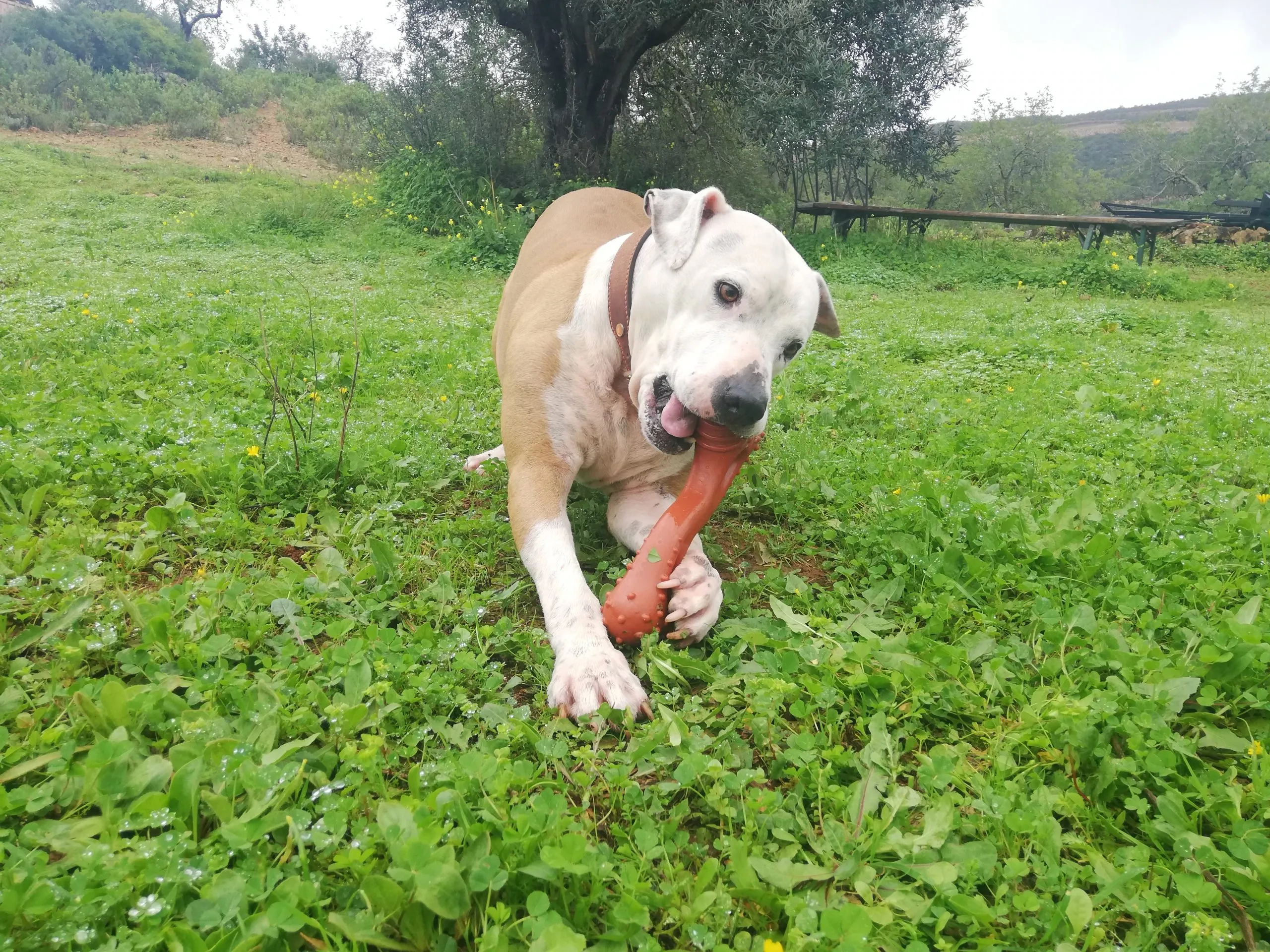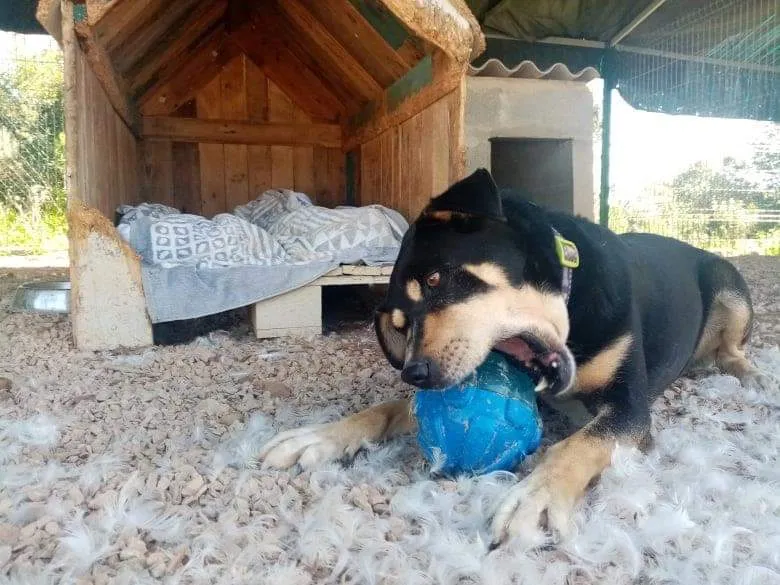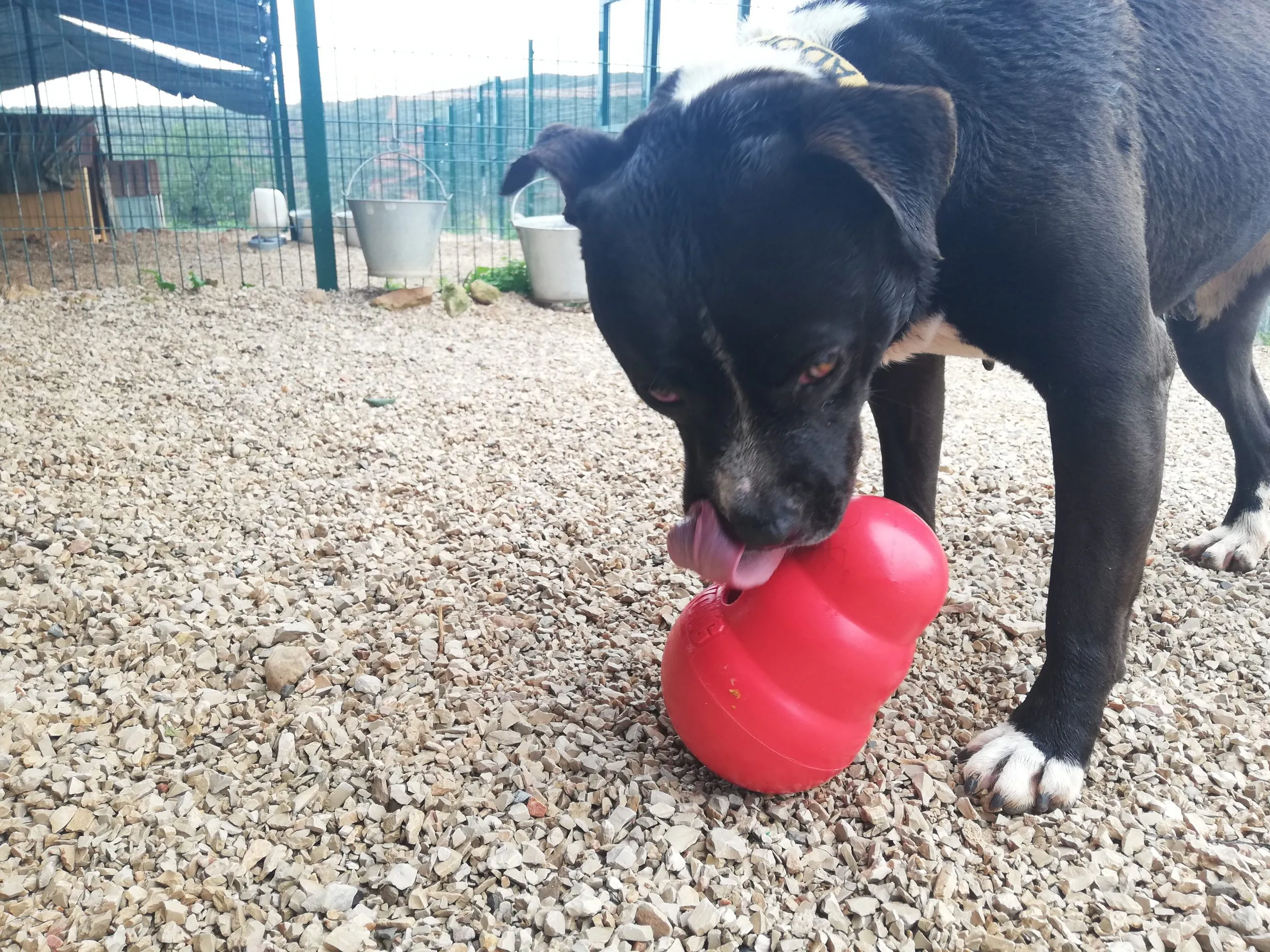Welcoming a new puppy into your home is a joyous occasion, filled with playful moments and endless cuddles. However, for many puppy owners, this period also brings the challenge of aggressive chewing. Puppies, especially those prone to strong chewing, explore their world with their mouths, driven by teething, boredom, or simply instinct. This natural behavior can quickly turn destructive if not redirected with appropriate toys, leading to damaged furniture, shoes, or even dangerous ingestion of household items. Finding the right chew toy for an aggressive chewer isn’t just about entertainment; it’s crucial for their dental health, behavioral development, and overall safety. You need toys that can withstand rigorous chewing, provide mental stimulation, and keep your puppy safely occupied.
Understanding Aggressive Chewing in Puppies
Aggressive chewing in puppies is a common behavior stemming from several factors. Primarily, it’s linked to teething, as puppies use chewing to relieve discomfort when new teeth emerge. Beyond teething, chewing is a fundamental way for puppies to explore their environment, learn about textures, and engage their senses. It also serves as a critical outlet for energy and can be a sign of boredom or anxiety if puppies aren’t receiving enough mental and physical stimulation. Providing a consistent selection of high-quality, durable toys is essential to manage this behavior effectively. Without suitable outlets, puppies may turn to inappropriate items, posing risks to their health and your home. Investing in the right toys can prevent destructive habits and teach your puppy what is acceptable to chew. It’s about channeling their natural instincts into positive, safe activities.
Our Top Picks for Aggressive Chewing Puppies (Based on Real-World Testing)
At Dog Care Story, we understand the struggle of finding chew toys that stand up to the challenge, especially for puppies with a powerful bite. We’ve put numerous toys to the test with our diverse pack of shelter dogs, including some strong chewers. While our initial testing involved adult dogs, we’ve carefully evaluated these options for their suitability and safety for aggressive chewing puppies. Our aim is to bring you honest, reliable feedback on toys that offer durability and engagement for your growing pup. Remember, even the toughest toys aren’t truly “indestructible,” and supervision is always recommended to ensure your puppy’s safety and the longevity of their toys.
Nylabone Extreme Tough Dog Chew Toy
The Nylabone Extreme Tough Dog Chew Toy is a standout choice for puppies who display serious chewing power. Our tests with dogs like Nero, a 9-year-old Pitt Bull known for his intelligent and persistent chewing, showed that this toy could withstand hours of gnawing with barely a mark. This particular XXL Bison-flavored bone is designed for dogs over 23kg, making it an excellent option for larger, aggressive chewing puppies or those transitioning from puppy-specific chew toys to more robust adult versions. Its slightly curved design makes it easy for paws to grip, enhancing the chewing experience.
Beyond its impressive durability, the Nylabone toy offers practical benefits for owners. It’s incredibly easy to clean and maintains its flavor throughout its lifespan, which encourages continued engagement. Unlike many other chews, it leaves no mess or lingering odors, a huge plus for maintaining a clean home environment. Black Nero, a Cane Corso cross with a history of destroying even strong fencing, found this Nylabone virtually indestructible, showcasing its exceptional resilience against even the most determined chewers. This toy’s robust construction and lasting appeal make it a fantastic investment for keeping your aggressive chewer satisfied and stimulated. Consider this as one of the best chew toys for aggressive chewing puppies available.
 White Nero testing the Bison flavoured Nylabone, a durable toy for strong chewers
White Nero testing the Bison flavoured Nylabone, a durable toy for strong chewers
The Details
- Bison flavored throughout (also available in chicken and turkey), designed to encourage chewing.
- Features raised nubs to help clean teeth and gums, promoting good dental hygiene.
- Made from safe, non-toxic materials.
- Measurements: 30.48 x 13.97 x 5.08 cm
- Weight: 485 grams
- Designed for dogs 23 kg and above (suitable for large, aggressive chewing puppies).
Summary
The Nylabone Extreme Tough Dog Chew Toy comes highly recommended for aggressive chewing puppies who require a durable, tasty, and long-lasting option to satisfy their chewing instincts. It effectively addresses boredom and stands up to even the most powerful jaws, making it a reliable choice for preventing destructive chewing habits.
KONG Rewards Ball
The KONG Rewards Ball offers a clever combination of play and mental stimulation, making it an excellent choice for active and puppy toys to keep them occupied. While our initial dog reviewers showed some initial hesitation, this quickly turned into enthusiastic engagement. The true genius of this toy lies in its treat-dispensing feature, which keeps puppies entertained for extended periods as they work to release their rewards. From a human perspective, filling the ball with treats is straightforward, and for the dogs, it doesn’t require excessive effort to get the delicious payoff.
Our dogs, including Jean, developed a deep affection for its soft, bouncy texture, often choosing to chew on the rubbery side before burying and rediscovering it. This speaks volumes about its durability and engaging nature. From huge Jambo to small Star, every dog at the shelter engaged with this toy without leaving a single tooth mark, and no treats were left inside – a clear testament to its effectiveness as both a chew toy and a treat dispenser. This toy is specifically designed for dogs 16 kg and above, so it’s best suited for medium to large aggressive chewing puppies who need a robust and interactive play item.
 Jean playing with the KONG Rewards Ball, an interactive treat-dispensing dog toy
Jean playing with the KONG Rewards Ball, an interactive treat-dispensing dog toy
The Details
- Combines play and treat dispensing for enhanced mental and physical stimulation.
- Made from durable KONG rubber, known for its resilience.
- Measurements: 12.7 x 12.7 x 12.07 cm
- Weight: 417 grams
- Designed for dogs 16 kg and above, suitable for many larger aggressive chewing puppies.
Summary
The KONG Rewards Ball is a versatile toy that combines two of a puppy’s favorite activities: playing and eating. Its durable construction ensures it can withstand extensive chewing and bouncing, while the simple yet effective treat dispenser provides hours of rewarding engagement, making it a valuable addition to your puppy’s toy collection.
KONG Wobbler Interactive Treat Dispensing Dog Toy
The KONG Wobbler is another fantastic interactive treat-dispensing toy that provides both entertainment and mental stimulation for aggressive chewing puppies. Its unique wobbly design initially perplexed some of our canine testers, including our sweet Kilo, but once they understood its function, it quickly became a favorite. Unlike many other KONG toys made from rubber, the Wobbler is crafted from a harder plastic polymer, contributing to its exceptional durability against determined chewers. From a human perspective, the twist-off lid makes it incredibly easy to fill with your puppy’s favorite treats or kibble.
This large, robust toy is designed for dogs 12 kg and above, making it ideal for medium to large aggressive chewing puppies. Its size can make it challenging for them to pick up easily, which actually helps prevent direct destructive chewing and encourages interactive play to release the treats. We learned that for optimal performance, the KONG Wobbler works best on smooth surfaces, and the treat size should be compatible with the dispenser hole. Once these simple adjustments were made, our dogs found it highly engaging and challenging to “destroy.” The KONG Wobbler proved to be both indestructible and easy to use once understood, providing prolonged mental engagement for busy puppies. This toy is also considered among the best chew toys for tough chewers.
 Pebbles reviewing the KONG Wobbler, a large treat-dispensing dog toy
Pebbles reviewing the KONG Wobbler, a large treat-dispensing dog toy
The Details
- Made from a durable plastic polymer, not rubber, for enhanced toughness.
- Twist-off lid for easy filling with treats or kibble.
- Measurements: Diameter 13 x 19 cm
- Weight: 485 grams
- Designed for dogs 12 kg and above, suitable for many aggressive chewing puppies.
- Maximum Filling Capacity: 250 grams.
Summary
The KONG Wobbler is an excellent choice for aggressive chewing puppies who need interactive enrichment and a challenge. Its hard plastic construction and unique design make it highly durable and effective at dispensing treats slowly, encouraging problem-solving skills and extended play sessions. It’s a great way to keep your puppy mentally stimulated and prevent boredom.
What to Look for in Chew Toys for Aggressive Chewing Puppies
When selecting chew toys for an aggressive chewing puppy, several factors are paramount to ensure both their safety and satisfaction. First and foremost, durability is key. Look for toys specifically marketed for “power chewers” or “aggressive chewers.” Materials like natural rubber, reinforced nylon, or hard plastic polymers (like those found in some KONG products) are generally more resilient than softer plastics or fabrics. These materials can withstand repeated gnawing without breaking into small, hazardous pieces. Always inspect toys for any signs of wear and tear, and discard them if they start to fragment.
Size is another critical consideration. The toy must be appropriately sized for your puppy’s mouth. A toy that is too small can pose a choking hazard, while one that is too large might be difficult or unappealing for them to manipulate. Ensure the toy cannot be swallowed whole. Safety also extends to the materials used; always opt for non-toxic, pet-safe materials free from harmful chemicals. Check for certifications or clear labeling indicating safety standards.
Furthermore, consider the type of toy. Treat-dispensing toys like the KONG Rewards Ball or Wobbler are excellent for mental stimulation and slow feeding, keeping puppies engaged for longer periods. Dental chew toys often feature textures or nubs designed to help clean teeth and massage gums, which is beneficial during teething. Plain chew toys provide a straightforward outlet for their chewing instincts. Variety is also important; rotating toys can keep your puppy interested and prevent boredom. For instance, exploring safe puppy chews for aggressive chewers can offer additional options.
Important Considerations for Puppy Chew Toys
Even with the most durable toys, supervision remains crucial, especially for aggressive chewing puppies. No toy is truly indestructible, and continuous monitoring allows you to intervene if a toy starts to break apart or if your puppy tries to ingest pieces. Regular inspection of all chew toys is vital; if you notice cracks, tears, or significant wear, it’s time to replace the toy to prevent potential choking hazards or digestive issues. This proactive approach ensures your puppy’s safety and extends the life of your investment.
Rotating toys is an effective strategy to keep your puppy engaged and interested. Rather than providing all chew toys at once, offer a selection of two or three at a time and swap them out every few days. This novelty can prevent boredom and make playtime more exciting. When introducing a new toy, especially for aggressive chewers, observe how your puppy interacts with it. Some puppies might need time to get used to a new texture or shape. Finally, remember that chew toys are not a substitute for interaction. While they are excellent tools for independent play and redirection, puppies still need your attention, training, and exercise. A balanced approach combining appropriate chew toys with plenty of human interaction will contribute to a well-adjusted and happy puppy. For specific breeds with powerful jaws, you might also want to look into best teething toys for pitbull puppies as an example of tailored choices.
Conclusion
Navigating the world of aggressive chewing puppies requires patience, understanding, and the right tools. Investing in high-quality, durable chew toys is not just about saving your furniture; it’s about providing a safe, constructive outlet for your puppy’s natural instincts, supporting their dental health, and preventing destructive behaviors. Our top recommendations, including the Nylabone Extreme Tough Dog Chew Toy, KONG Rewards Ball, and KONG Wobbler, have proven their resilience and effectiveness in real-world tests, offering reliable solutions for even the most determined chewers.
Remember to prioritize durability, appropriate size, and non-toxic materials when selecting toys for your aggressive chewing puppy. Consistent supervision and regular inspection of toys are paramount to ensure their safety. By providing a varied selection of engaging and tough toys, coupled with plenty of interaction and training, you can guide your puppy through their chewing phase successfully, fostering a happy, well-behaved companion. Explore our website for more expert advice and product reviews to ensure your furry friend receives the best care possible!
